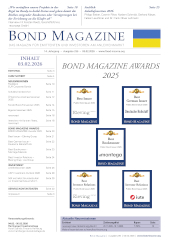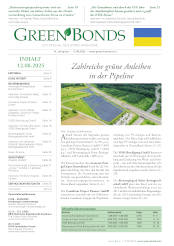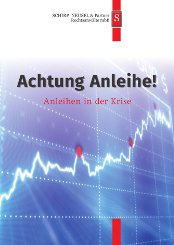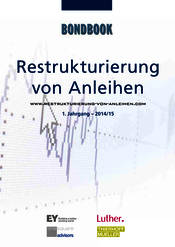“The recent turmoil and persistent challenges for the Greek government to refinance itself in global bond markets has created a situation in which it can no be excluded that broader contagion of this tragedy in the global financial system can occur. Although we have been sceptical about the possibility of the Greek government solving these problems on its own for some time, it is important to stress that our base case scenario continues to be that the Greek government will not default in either 2010 or 2011. Nevertheless, we acknowledge that the risk of such a negative outcome has increased substantially in recent weeks.
Over the week the sovereign debt problem in the EMU peripherals reached a new zenith. While German yields fell, the Greek 10y yield rose well above the 10% mark and the 2y yield even rose above 15% (a more than 1400bp spread over Germany!). All this suggests that investors still have a lot of question marks about Greek liquidity as well as debt sustainability. With a slight delay emanating from another country with severe debt problems of its own, a delegation of the IMF, the EC and the ECB arrived in Athens to discuss the conditionality of the rescue package. Furthermore, last Friday Greece officially requested to activate the mechanism.
It thus still remains possible that the funds can be distributed before May 19 when the next batch of amortisation payments is scheduled to take place. Hence, a Greek default due to liquidity problems needs certainly not happen in the next few months, if only because the remainder of the EUR 45 bn (2/3 bilateral loans and 1/3 IMF) could well be frontloaded if needed. Having said all this, there is an increasing risk that the German contribution (8-9 bn) may be delayed because of internal domestic reasons. If this were to happen this would give a very negative signal to the markets.
The support mechanism is, of course, only a short-term solution. What happens after that remains completely unclear. Greece needs to refinance around 50% of its debt in the next 5 years, i.e. to cover interest and coupon payments the country will have to cough up between EUR 30 and 40 bn per annum until 2015. It is highly questionable that the EMU/IMF consortium will be willing finance this completely.
Although the medium-term fundamentals are constructive for risky assets, we feel that short-term correction risk has increased strongly on the back of these developments. Therefore, we have shifted our tactical asset allocation recommendations further towards risk reduction by bringing equities and credit from overweight to neutral positions.”














